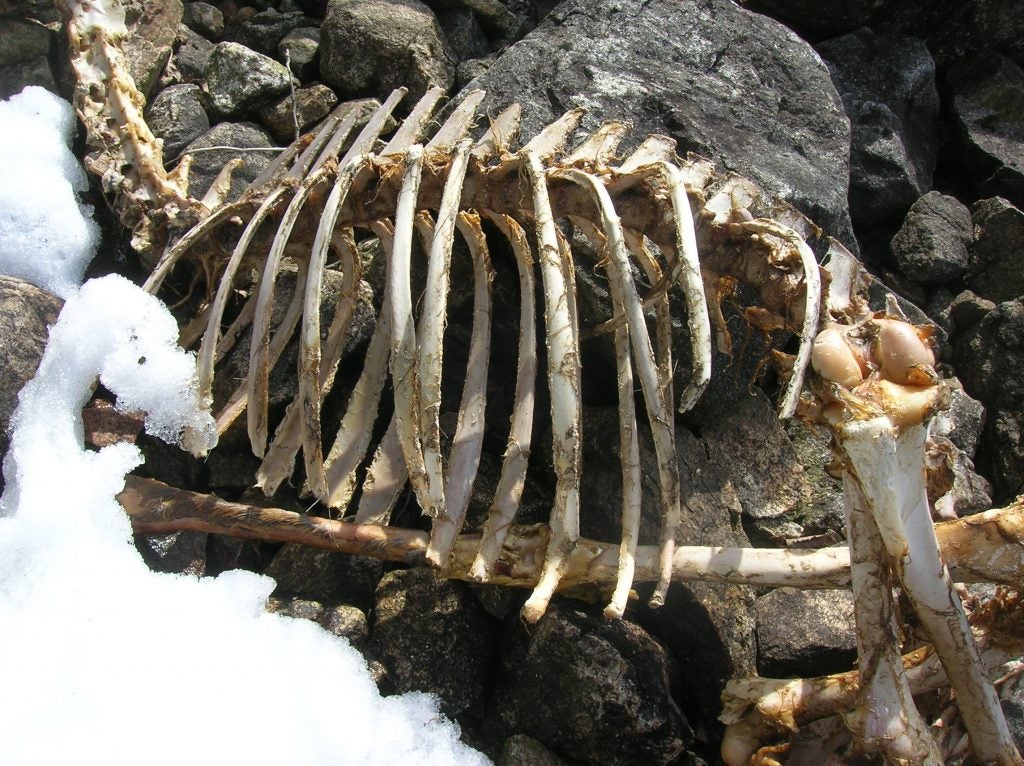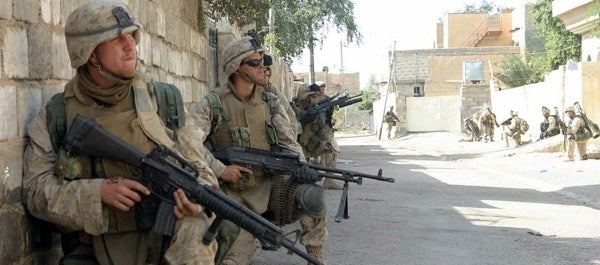There are a few things I know — believe — to be true.
My father’s name was Tran Long Nghi.
Some of his documents transpose his first name
with his last, or his first with his middle.
My mother’s name is either Tran Thi Marie or
Tran Thi Maria, depending on whether you trust
her passport or her other documents.
She herself uses both names.
On my baptismal certificate, Juyeng is written in the space
where my mother’s name was to be recorded.
This is neither a Vietnamese nor
a French name, nor
is it a phonetic spelling of one.
Some of my mother’s documents list her birthdate as
March 1st,, some March 13 th.
My mother’s real birthdate is unknown.
The passport she used when she emigrated
was issued by a country that no longer exists,
South Vietnam.
It lists no month or day, only a year.
It is not the same year
that is listed on her American passport.
I have six, at least, brothers and sisters.
There may be half siblings.
There were whisperings.
My six brothers and sisters were born in
four different countries.
I was born in a fifth.
At the times and places where my siblings were born,
record-keeping was more casual than it probably is
where you are reading this right now.
There were no ID bracelets for newborns.
One of my brothers may not be
biologically related to us.
He is different from the others.
My mother says not to mention it.
All seven of us siblings have two or three
names that we go by.
It is unclear how some of them originated.
I do not have a Vietnamese given name.
My birth certificate lists my given name as Barbara.
Not a single blood relative calls me this.
Inside the family albums are many loose photographs.
On the back of one is a child’s hesitant handwriting.
In Vietnamese: This is the living room.
The furniture here is found in no other photograph.
It is distinctly Western. And hip for its time, the early
to mid-Sixties. Such furniture could have been
bartered
for months’ worth of groceries.
A man’s hat rests on a mid-century modern,
compartmented coffee table, along with what appears to
be a can of beer.
A tripod stretches across a sofa.
The sofa faces two armchairs.
A third chair faces a narrow French door.
It is of a style that could be found in Việt Nam.
There are no people to indicate whether this is my father’s
living room in the United States or my mother’s in Việt
Nam.
The modern armchairs look prohibitively expensive
for a woman raising four children on her own.
They are also too extravagant for a man
new to the United States, sole guardian to two
adolescent daughters.
The furniture and the setting appear to be
from opposite sides of the world.
I don’t know where I am.
My father arrived in the United States in
1965.
He was serving as an attaché
to the Vietnamese Ambassador
to the United Nations.
This is one account.
Another is that he was the private
secretary to the Foreign Minister.
Another
is that he was an accountant.
Whatever the case, he arrived in New York City
with his two eldest daughters.
They were twelve and thirteen. They arrived
in New York City in the midst
of the Sexual Revolution. They were perfect
dolls. They posed with their dolls,
all four in similar dresses and hats.
In the early photos, my sisters smile genuinely.
They do so even when posed
on the beach with women who are not their mother.
Their expressions change along with their hair, falling
longer, blunter. By the time their mother arrives
in New York City, two years later, the eldest
has a mod haircut, and the other
has grown her hair
down her back, the way
she would have worn it
in Việt Nam.
My memory is an album.
The photos are not in chronological order.
Some are out of focus.
Some are bent.
Some may have been placed
in the wrong envelope at the photo- processing unit.
In a photo taken in his first apartment in New York City,
my father poses.
He stares directly into the lens.
My father was a proud man.
It is a beach chair
he lies on
in his living room.
The day he died the sky was as clear as a good gemstone.
His inhalations grew shorter and shallower.
He was choking on his own breath.
I measured the morphine with care.
I appreciated that someone thought to dye it
a tranquil blue.
I administered. I watched. I waited.
What comforted was the schedule, the notebook
that proffered recordings of time and dosage,
the dropper with its precise markings,
the aqua blue liquid.
These instruments were my familiars.
I clung to them.
Horror
in the form of awakening and
remembering
pierced any sleep.
Before and after he passed,
I scavenged through the house,
collected his photos, spread them out
on my glass desk, first on the west
end of Toronto, north
of Bloor, now on the east, south of the
Danforth.
I have been writing and rewriting this story, re-membering
and furnishing photos of empty rooms, connecting
hairstyles
and homes like dots, constructing a history.
There are few photos of my mother, even fewer
of her smiling.She is rarely
without one of her six
children. Frequently, she is overrun. Not infrequently,
she is doing something for one of them: slicing
birthday cake, squeezing
a shoulder to get. a child
to stand. upright. Sitting is rare.
In a few photos, she is trapped
in polite conversation
with friends of her husband’s. Quickly,
she falls out of the frame,
the focus remaining on the guests, the children,
the house, the city at large.
Her husband, the lens,
points elsewhere.
In a Christmas photo, the youngest at the time wears stiff
denim jeans that make it difficult to squat.
He gets smacked for squatting.
His father tells him to act civilized.
They are poor, but they have chairs.
He needs to use a fork.
The three brothers wear the same
style sweatshirt in different colors.
It is cheaper this way,
and in this way, they are marked,
if they were not already,
with their flat faces and roughly chopped hair.
The boys smile with the rifles they received for Christmas.
They pretend to take prisoners.
They enjoy giving orders.
They enjoy finding their targets, identifying
where they will take their charges, considering
how they might hurt or frighten them.
When their sister arrives on the scene,
the only sister who was left behind
in Việt Nam with them, they lay down
their guns.
Pretend games do not frighten her.
Plastic guns mean nothing.
She commands them to get her a Chip-a-Roo from the cupboard.
She directs them to chop the carrots their mother
instructed her to prepare for dinner.
She orders them to keep their mouths shut.
She pinches, twists, strikes, and glares.
She does so without hesitation,
without having to consider
how violence looks.
She knows.
Even in their best pretend games,
the boys can never approach
her unrehearsed acts.
He says he must take the job.
He will be paid handsomely.
They need the money.
It’s an important mission.
He leaves. Leaves
my mother, who barely speaks English, leaves
her with seven children, who speak little English, who are always hungry.
Leaves
them after they boarded that monstrous machine to be with him again,
let go their contact with the earth and water, turned
away from family, friends, foes to come to this land. Leaves.
Photos arrive in the mail:
him posed in front of new cars,
beside palm trees, in hats
with brims so large
they cast shadows
that obscure his face.
These brims imply
the kind of sunshine
they once knew, the kind
they’d prefer to be in now
rather than in the shadows
of the tall tower
in which they now live.
Their mother warns them.
There are occupancy laws
in their new home. Their very existence
puts them in violation.
She tells her children to hide.
There are no photos where Lady Liberty’s face and my
sisters’ are visible within the same frame. My sisters are
posed only
at Lady Liberty’s back. They smile in her shadow.
For my father’s own portrait, he stands below a sign with a
single word that runs the entire width of the store:
PEERLESS
It is snowing.
The photo is out of focus.
Night is falling.
He will soon be obliterated.
There is a series of photos of me as an infant, learning to
sit up,
propped in a line of dolls. Screaming.
The time between this and when I am walking
is undocumented, is replaced
by photos of my father standing
before a backdrop of cacti, squinting
against the sun and dust. He is well. dressed
but always alone. There are houses
and vehicles but no people.
It is as if he has alighted in a land
that has been abandoned by man.
Who takes the photo?
Who eats dinner with him?
Does he call home?
In the photos at the point in time when I can walk comfortably,
I sport red cowboy boots.
I wear them in the snow.
I wear them with dresses.
I wear them with my hair pulled back in pigtails.
These are snapshots.
By virtue of their nature, at times
they distort the truth,
slicing open a moment,
snaring a facial expression
on its way to something else.
The framing is sometimes deliberate, sometimes accidental.
Here, an untied shoe. There,
the whole family, in size order.
A stranger appears at the back of this shot.
My brothers are pushed to the borders in this one.
This much I know:
This is the living room.
But whose?
Only one green corner
of a label remains, sticking teasingly
to the cover of the slim address book.
Whatever information the label once
announced has long since peeled away. Above
the green, the year
is embossed in gold: 1975. Some
of the entries inside are so faded
they are difficult to read. A man
accustomed to impermanence, my father
preferred to write in pencil. Many
of the contacts listed are Vietnamese. Most
are located in New York, some in
Virginia, a few in Việt Nam.
Recorded on the inside flap
— of both
the front and the back cover —
is my father’s Certificate of Naturalization
number. Was it a reminder
that he could no longer
return to the country that he
called home for forty-four years? Or,
more practically, was the twice-
recorded number a reflection
of his concern, a gesture toward self-
preservation? Did he fear
being stopped
and questioned
in the only place
he could now call home?
In the middle of the address book
is an entry that lists no
name, either for an individual or
a business, instead tantalizing with a
one-word question: Jobs?
And an address
in Rego Park, Queens, New York.
Near this listing is another,
more complete. It includes not only
a name, address, and phone number,
but also a hint after the name,
in parentheses: (private detective).
A different entry promises Mexican snacks.
Another offers almost nothing
at all. No contact name, no
location, not even a city, no
phone number. Its only offering,
a reminder. of its existence: Suicide
Prevention Center.
My father was a self-taught speaker
of multiple languages. My mother,
like me, a speaker of a single
tongue (though a different one),
can answer none
of my most pressing questions.
She tells me my father never had a hair
or pencil out of place, that he enjoyed
taking photographs
with no people in them
and. was extraordinarily protective
of his plants.
On my desk sit two biographies of a man,
not my father.
I read them as if they might reveal something to me.
And they do. Flagged with Post-its,
they surrender secrets
in a manner not so different
from the way a person might:
in measured layers, offering some facts
but holding back crucial details, repeating
certain phrasing, teasing
with ambiguous wording.
The Vietnamese subject of these biographies
grew a moustache
to disguise himself
when he went into the field.
He told his colleagues
that the women
of Huế
preferred
the hippie look.
He called himself
a doctor
of sexology. He said
he was bird watching.
He was, in fact,
an intelligence agent.
His mistress was the American occupation.
In the year of the Tết Offensive, the year
of my birth, my father left the family
for a job in Texas.
He was, he said, teaching American
officers the Vietnamese language.
He took no family members with him.
In the photos he sent home during this period,
no people other than himself appear.
Even the background is scrubbed
of human presence. It is a desert,
literally
and figuratively.
Another version of this story:
My father is planting seeds, teaching
his language, that the shared words
might blossom into peace.
In my mind, a different kind
of blossom opens: Malcolm
Browne’s photo,
the Buddhist monk
Thích Quảng Đức ablaze.
Like a flowering
ocotillo in the desert,
he drew all eyes
before rejoining
the earth.
On a plain white
piece of paper, my father wrote
the beginning of his autobiography, a letter, a
suicide note(?) My name is Tran Long Nghi …
The document whirls
through his life in India,
the Philippines, Việt Nam, and the United
States all in a short paragraph, revealing
little. It ends
with the relinquishment
of his duty at the United
Nations: I was forced.
With each new photo
or document of his
that I discover, the tide
reverses.
Writing this
is my one
buoy.






